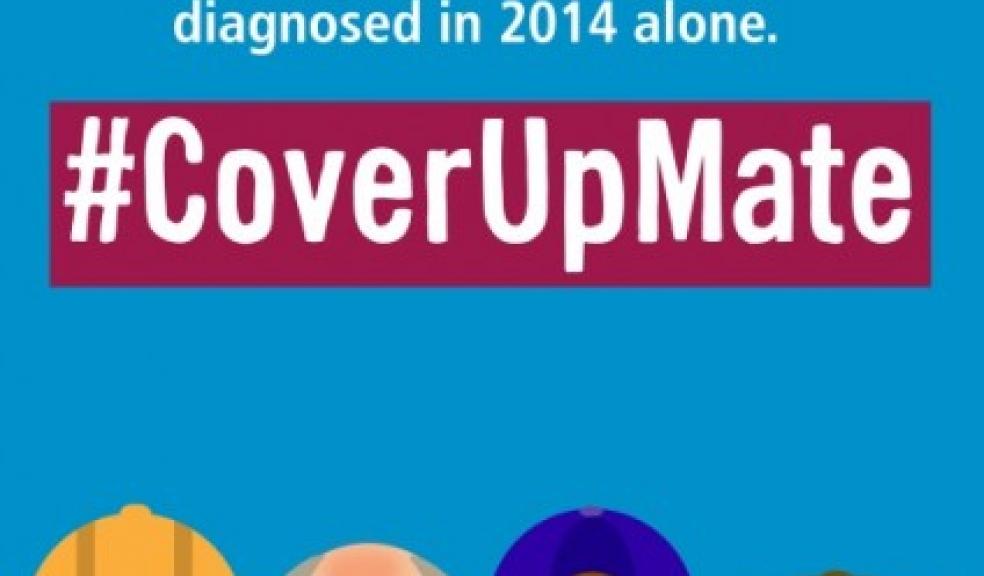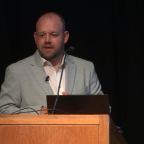
Devon public health leaders sign up to skin cancer campaign
Public Health leaders in Devon are supporting a national campaign urging men who spend a lot of time outdoors to protect themselves against the sun, to reduce the risk of skin cancer.
Skin cancer rates are higher than average and rising in the South West, and the NHS “Cover Up, Mate” campaign launched today (Mon 19 June) will target male agricultural and construction workers, gardeners and sportsmen, who often don’t use suncream.
The campaign is supported by a range of organisations connected to outdoor work including the Met Office, the Institution of Occupational Safety and Health (IOSH), the National Farmers Union, Mole Valley Farmers farming supply retailer, suncream manufacturer Debs and building supplies retailer Jewson.
New figures suggest the danger is not confined to the height of summer, but is also an issue during good weather in April and May, when the sun could damage winter-pale skin.
The average ultraviolet (UV) radiation levels at the South West’s solar monitoring station in Cornwall were 34 per cent higher than the ten year monthly average in April this year. And while mean levels were overall the same as what would be expectedl in May, peak levels were still 15 per cent higher, indicating that UV was stronger than at certain points.
Public Health England (PHE) scientists believe this was caused by long periods of clear skies, with less rain and cloud to absorb UV.
The Met Office recorded that the mean daily temperature in the South West was 0.6°C higher than average in April and 1.5°C higher in May. April saw 15 per cent more sunshine hours and just 35 per cent of average rainfall. And May saw 4 per cent more sunshine and only 85 per cent of average rainfall.
This better weather overall may have prompted people to spend more time outside, thereby exposing themselves to the greater UV levels. This was also a time of year their skin would naturally have lost resistance to UV over winter, and they were less likely to cover up than in summer.
Cllr Roger Croad, Devon County Council’s Cabinet Member with responsibility for health protection, said: “We’re supporting Public Health England’s campaign as we recognise the high number of men and women who spend time outdoors across the County, both at work and in their leisure time.
“We’re also fortunate enough to be living in a part of the country with access to beautiful beaches, moorland and countryside, so while we enjoy the summer weather we just need to make sure we protect ourselves from sun damage.”
A recent Imperial College study, commissioned by IOSH estimated that there are 48 deaths and 241 cases of melanoma skin cancer a year in Britain caused by ultraviolet (UV) rays from the sun at work. Of these, construction workers made up the highest number of deaths (44%), followed by agriculture workers (23%).
Research also indicates that men are worse at protecting themselves from the sun. A YouGov survey, commissioned by Cancer Research UK, found that more than 50 per cent more men than women forget to protect their skin and, worryingly, 75 per cent more men than women are not worried about getting sunburnt.
Latest statistics from Cancer Research show that since the late 1970s, skin cancer incidence rates have more than quadrupled (360% increase) in the UK. The increase is larger in males where rates have increased more than six-fold (544% increase), than in females where rates have more than tripled (263% increase).
Dr Virginia Pearson, Devon’s Director of Public health, said: “We need to be mindful of the harmful effects of UVA and UVB rays. Not only does it expose us to the risk of skin cancer, but it can also cause long-term damage and premature ageing of the skin.
“Research shows that there are higher numbers of men than women with skin cancer, and that’s why this campaign is targeting males, to inform them of the risks of exposure and enable them to take simple measures to stay safe in the sun, and make sure they don’t burn.
“The earlier skin cancer is caught, the easier it is to treat, so anyone who has any concerns, particularly where moles or freckles change size or shape, should see their GP as soon as possible.”
Public Health England statistics show that many local areas across the South have higher rates of malignant melanoma than the national average. Between 2005 and 2014, incidence of malignant melanoma in men rose by 45.3% in the South West. Deaths by malignant melanoma in this time also rose by 22.4% in the South West.
Construction, agricultural and horticultural businesses are also being asked to sign up to a pledge to encourage their employees to protect against the sun. The Institution of Occupational Safety and Health’s (IOSH) No Time to Lose campaign aims to raise awareness of occupational cancer, such as from solar radiation, and help businesses take action. Its pledge is a six-point action plan which includes assessing the risks and developing prevention strategies. IOSH has developed free practical resources such as videos, case studies, posters, available here.














